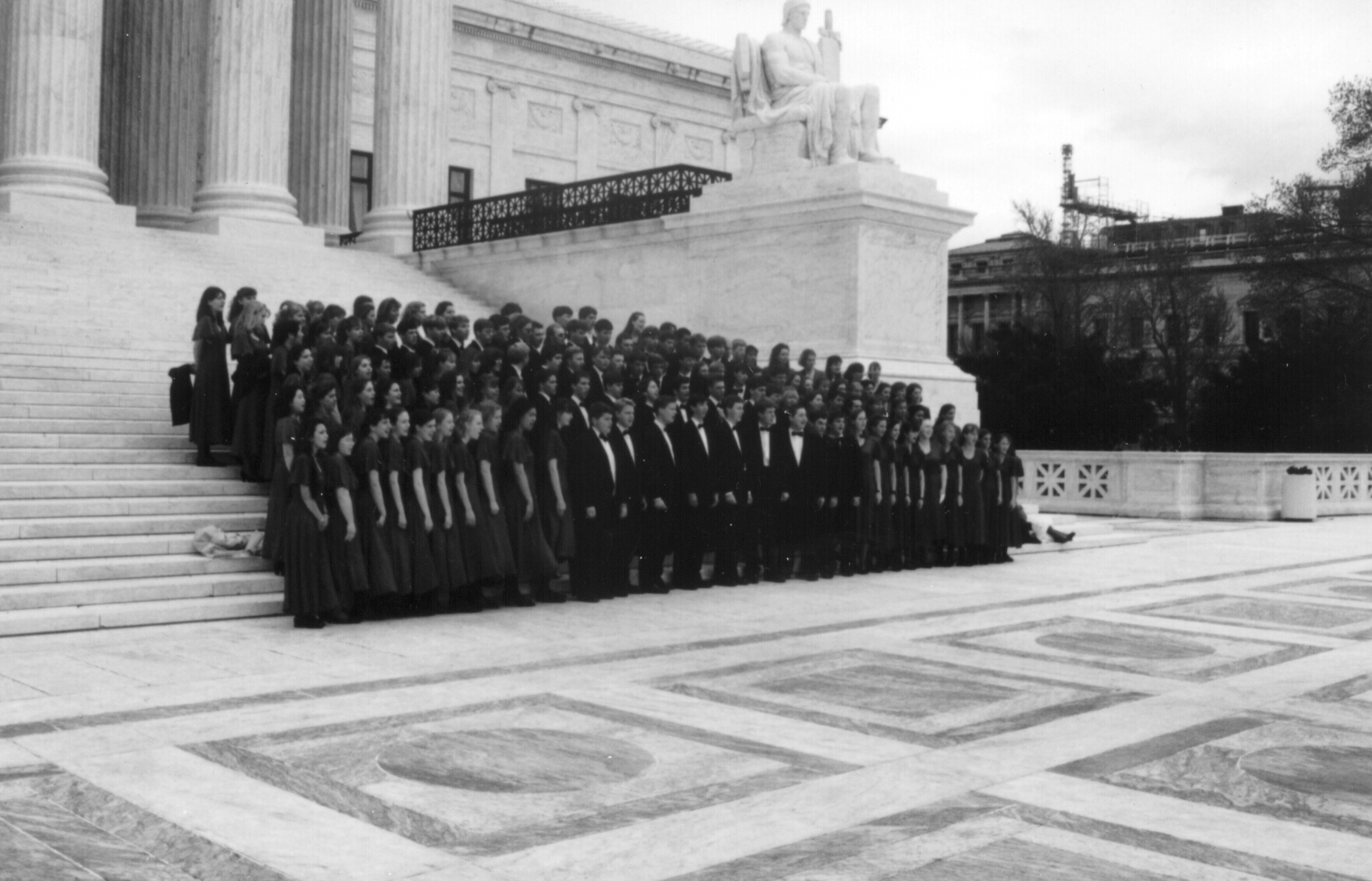Bauchman v. West High School
Scoreboard
Case Snapshot
Every year West High School in Salt Lake City, Utah, held school concerts where students would perform a variety of songs that reflected the diversity of the community’s culture and heritage. In addition to secular songs, the music director often included spiritual songs with a Judeo-Christian origin, but made those songs optional to perform. In 1995, a student sued the school, challenging the music director’s decision to include religious songs in the school Christmas concert. Becket stepped in on behalf of other students and their parents to defend the school’s decision to foster cultural and religious diversity in its musical choices. In 1997, Becket won an important victory for members of a high school choir in Utah, ensuring school choirs can perform a diverse repertoire that includes music with religious origins or texts.
Status
Share this Case

Case Summary
Can school choirs sing songs that include religious texts? The law says ‘yes’
Richard Torgerson was a music teacher who led choir at West High School in Salt Lake City, Utah. Every year Mr. Torgerson arranged school concerts throughout the year where students would perform a variety of songs that reflected the diversity of the community’s culture and heritage. In addition to secular songs, he often included spiritual songs with a Judeo-Christian origin. Mr. Torgerson made clear that the religious songs were optional to perform, and that nonparticipation would not affect a student’s grade in any way.
But in 1995, a student sued the school, challenging the music director’s decision to include the religious songs in the school Christmas concert. Becket stepped in on behalf of other students and their parents to defend the school’s decision to foster cultural and religious diversity in its musical choices.
In federal court, Becket argued that, given the prevalence of religious themes and text in Western music, it is simply natural for a rich and diverse music curriculum to include music with religious references. Religious freedom, as understood by our nation’s founders, means that religion is a natural part of human culture and occupies a natural and proper place in the public square. Public schools are not required to scrub their curricula of any reference to religion. To do so would be to deny students valuable educational materials.
The courts agree with Becket: including religious songs does not violate the U.S. Constitution
In September 1995, the federal court agreed, ruling in favor of West High School and dismissing the student’s lawsuit. The student appealed to the Tenth Circuit Court of Appeals, which again ruled in favor of the high school on December 18, 1997. The court ruled that the student’s allegations were insufficient to support her attack on the song selections, given the obvious secular purposes of the Christmas concert, as well as the fact that the religious songs were completely optional for the students. Furthermore, the court saw no reason to conclude that the selection of religious songs was illegal simply because they contained views different from the student’s own. The Supreme Court declined to take up the student’s case, ensuring that religious music could continue to be part of the public square and to celebrated as part of America’s diverse culture.
Importance to religious liberty
- Education: Public schools are not required by the U.S. Constitution to scrub their curricula of any reference to religion. To do so would deny students valuable educational materials that reflect our nation’s diverse culture.
- Public square: Religion is a natural piece of human culture and has a natural place in the public square. Religious references cannot be confined to private spaces just because there are those who disagree with them.